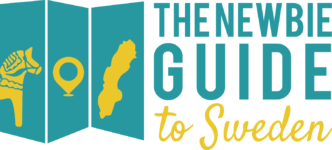Sweden is (1) the home of the Nobel prizes, (2) the hub for start-ups in Europe and (3) the second European country (after Finland, but don’t tell that to anyone) in resources devoted to research and development (R&D) as a percentage of the Gross Domestic Product (GPD).
For researchers in Sweden, it’s a paradise. Research in life sciences, cleaner technologies, and IT and communication technologies; the only place in the world where infallible cars (Volvo), self-assembled furniture (IKEA) and spotless melodies (ABBA) could be simultaneously conceived.
It’s a dreamland for any scientist, where one can basically make reality to any creative idea.
Either if you arrive as a Master or a PhD student, to perform your postdoctoral stage or to establish your own research group, Sweden offers unlimited possibilities in terms of research education, funding opportunities, a well-defined career path, possibilities to balance professional success with personal life, and unlimited cooperation partners within academia, research institutes and industries.
And, by the way, this is the week where world-leading scientists are received and cheered as heroes in the Nobel ceremony and where the whole country stops for celebrate excellence in science – (tomorrow there will come a Nobel Prize Quiz, so keep en eye out) with the same excitement as the Eurovision Song Contest entries are selected every year in the national Melodifestivalen.
But is it all wonderful for a researcher in Sweden?
However, after the initial hype, one realizes the difficulties to navigate in a foreign system where everything is not as clear as it seems.
- How should I address and engage my supervisor in my research?
- Where can I apply for funding as a young researcher?
- Which are the etiquette codes when interacting with my newly established collaborators?
- How can I deal with the unclear university administration?
Whether you are an early stage researcher or an established leader, many questions arise when doing R&D in a new country.
The purpose of this blog is to discuss different issues of a researcher’s life in Sweden, both sharing the experiences from my early days as a PhD student and the challenges/excitement of the new discoveries as a young research leader.
My intention is to provide factual information about the different aspects of scientific practice combined with more relaxed personal impressions of the interactions with other scientists and students from different backgrounds. Hopefully this will be helpful for any of you working with R&D in Sweden, independently of your career stage, and will provide an interactive platform for discussion.
Useful links
- The Official Website of the Nobel Prize
- The Telegraph (28 Jun 2015), How Sweden became the start-up capital of Europe
- Organization for Economic Cooperation and Development (OECD, 2013)
Written by Francisco Vilaplana
Francisco Vilaplana is an Associate Professor at KTH Royal Institute of Technology. He has international research experience from Spain, The Netherlands, Australia and, of course, Sweden. Francisco is passionate about research on sustainable materials and processes, especially on utilising biomass for solving our material, energy and nutritional needs and understanding the molecular mechanisms behind biotechnological processes. In this blog, he will discuss in an informal setting the challenges and possibilities of a newby researcher in Sweden.
Neither his host institution, none of the funding agencies, nor his co-workers can be held responsible for the opinions in this blog.


Leave a Reply